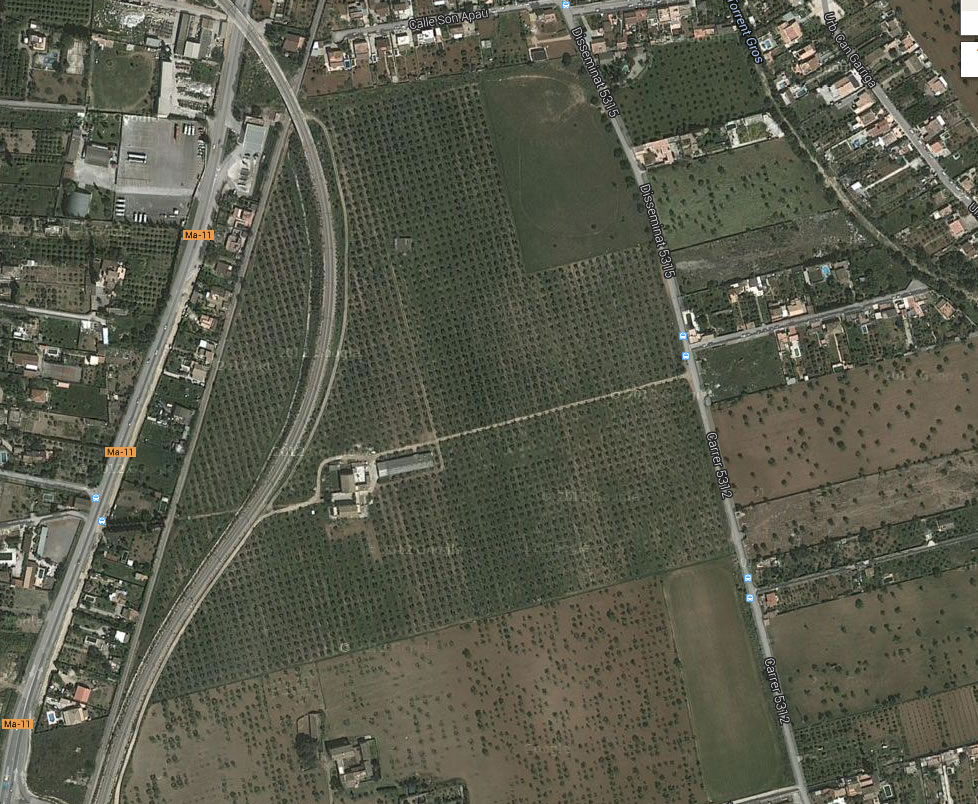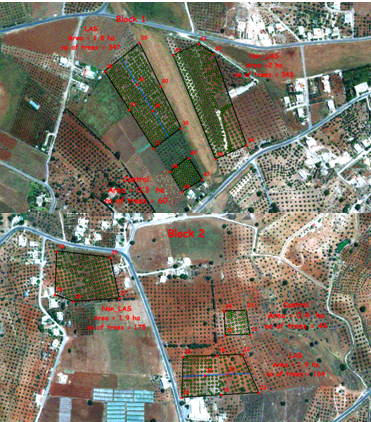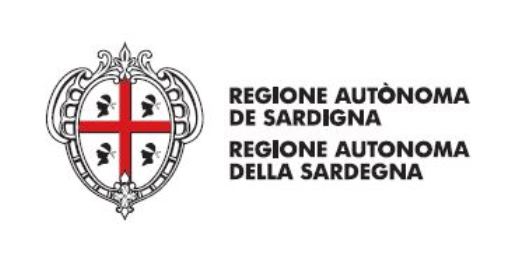Selected Pilot Area - Brief Experimental Design
The Olive Fly Net pilot site trial in Majorca is conducted during 2015 in a 14 years old private orchard called Son Llompart and owned by Wengue, a well-known brand of fine olive oil in Majorca. The orchard consists of 17 ha of different varieties of olive trees, such as Empeltre and Picual.

One of the major problems for oil production in the area is precisely the Olive fruit fly, Bactrocera oleae (Rossi), a monophagous species which larvae develop in wild and cultivated olives (Olea europaea). Four to six treatments are applied annually to control this fly, therefore increasing the risk of environmental pollution, insect resistance and impact on non-targeted beneficial arthropods.
The Olive Fly Net project will develop a LAS (Location Aware System) for improving the control of olive fly by bait-spraying in three experimental plots in the orchard. The system is based on the deployment in the field of fully automated traps, able to record the number of flies by taking pictures of a baited sticky trap and different environmental parameters, such as temperature and humidity. The record on real time of olive fly adults and those parameters will allow us to make precise decision about spraying by using a Decision Support System (DSS) specifically developed for this project. The DSS estimates the risk of fruit fly attack according to the information that is sent via WIFI by the different automated traps. This autonomous system will allow to the farmers to have daily data about the presence of the Olive Fly in the orchard and the necessity or not of conducting a treatment. In addition, the system is able to determine the area of the orchard that shows a risky level of fruit infestation; therefore, insecticide spray covering large areas will be not needed any longer. By this, we will reduce the amount of insecticide, residues in fruits as well as the cost of olive fly control. The LAS system will be compared to a conventional monitoring and spraying procedure in the same orchard. Another clear advantage of the LAS system is the reduction in labour cost of monitoring procedures for olive fly. The automated traps will be able to send in real time (i.e.: once a day) better information about olive fly abundance that the conventional monitoring, which usually data is collected in a weekly basis.
The LAS pilot started in September 2015 in Son Llompart orchard including 3 LAS plots and 3 NONLAS (conventional) plots.





